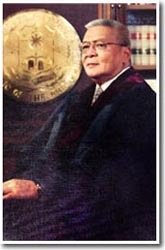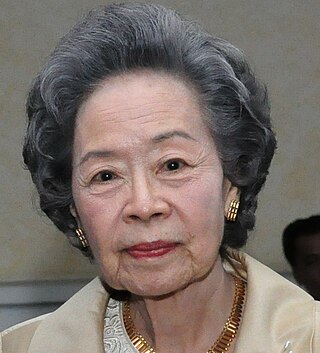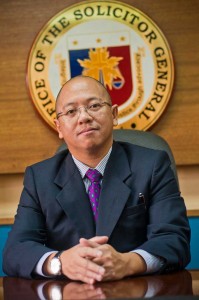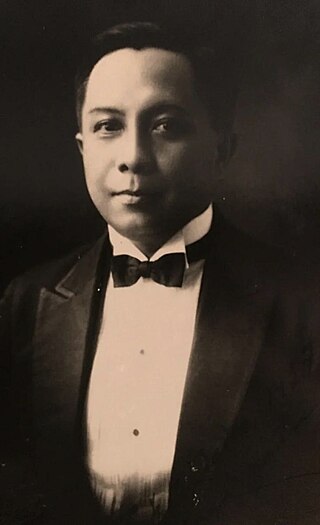
The University of the East College of Law or UE Law is the law school of the University of the East, a private, non-sectarian university in Manila, Philippines.

Andres dela Rosa Narvasa was the Chief Justice of the Supreme Court of the Philippines from December 1, 1991, to November 30, 1998.

The Far Eastern University – Institute of Law, also known as FEU Law or IL, is the Legal Education Board-accredited law school of the Far Eastern University. It is one of the four earliest institutes that comprised the university in 1934.

San Beda College of Law is the law school college under the San Beda University, a private, Roman Catholic university run by the Benedictine monks in the Philippines.
Legal education in the Philippines is developed and offered by Philippine law schools, supervised by the Legal Education Board. Previously, the Commission on Higher Education supervises the legal education in the Philippines but was replaced by the Legal Education Board since 1993 after the enactment of Republic Act No. 7662 or the Legal Education Reform Act of 1993.

The University of the Philippines College of Law is the law school of the University of the Philippines Diliman. Formally established in 1911 in UP Manila, it is the third oldest continually-operating law school in the Philippines. Since 1948, it has been based in UP Diliman in Quezon City, the flagship of the UP System's eight constituent universities. The college also holds extension classes at the Bonifacio Global City campus of UP Diliman in Taguig and the Iloilo City campus of UP Visayas.
The Philippine Bar Examinations is the professional licensure examination for lawyers in the Philippines. The exam is exclusively administered by the Supreme Court of the Philippines through the Supreme Court Bar Examination Committee.

Arturo Dizon Brion is a former associate justice of the Supreme Court of the Philippines. He took his oath as a member of the Supreme Court on March 17, 2008. From 2006 until his appointment to the Supreme Court, Brion served in the cabinet of President Macapagal-Arroyo as the Secretary of the Department of Labor and Employment.
Monina Arevalo Zenarosa is a retired Associate Justice of the Philippine Court of Appeals.
Alfredo Logronio Benipayo is the former Dean of the University of Santo Tomas Faculty of Civil Law, the oldest law school in the Philippines. He is a former magistrate and a respected law professor and bar reviewer in the country.

Ameurfina Melencio-Herrera was a Filipino lawyer who served as an Associate Justice of the Philippine Supreme Court from 1979 to 1992. She was the second woman appointed to the Supreme Court, filling the vacancy left by the retirement of the first female Supreme Court Justice, Cecilia Muñoz-Palma.

Diosdado "Dado" Madarang Peralta is a Filipino attorney and jurist who served as the chief justice of the Philippines from 2019 to 2021. He previously served as an associate justice of the Supreme Court of the Philippines from January 13, 2009, to October 22, 2019. He is the third Sandiganbayan presiding justice to be appointed to the high tribunal.

Legal management or paralegal studies is an academic, vocational, and professional discipline that is a hybrid between the study of law and management. Often, alumni of legal management programmes pursue a professional degree in law such as Juris Doctor (JD) or Bachelor of Laws (LL.B.) while some profess as paralegals, law clerks, political analysts, politicians, public administrators, entrepreneurs, business executives, or pursue careers in the academe.

The Silliman University College of Law is one of the constituent colleges of Silliman University, a private university in Dumaguete, Philippines. The college was founded in 1935 with Emilio Javier and Felix Gaudiel as pioneers. When the college opened, it offered a Bachelor of Laws (LLB) program, but in 2009 it shifted its offering to Juris Doctor (JD). In 2019, Silliman University College of Law was ranked by the Legal Education Board (LEB) as 8th in the list of 10 Top-Performing Law Schools in the Philippines, with 66.67% or 12 out of 18 of its first time Bar Exam Takers passing the 2018 Bar Examinations.

Florin "Pilo" Ternal Hilbay is a Filipino lawyer who served as the Solicitor General of the Philippines from 2014 to 2016. He acted as the Philippine agent in the international case, Philippines v. China, which nullified all historical claims of China in relation to the South China Sea dispute. He ranked first place in the 1999 Philippine Bar Examination.

Alfredo Benjamin Sabater Caguioa is a Filipino lawyer who is an associate justice of the Supreme Court of the Philippines. Prior to his appointment as associate justice, he served as acting secretary of the Department of Justice and chief presidential legal counsel under the presidency of Benigno Aquino III.

Tranquil Gervacio S. Salvador III is a Filipino lawyer, educator, and civic leader. He has served as spokesperson and member of the defense panel for the impeachment of the then-Chief Justice Renato Corona and handled other notable cases of Filipino personalities and corporations.
Maria Liza A. Lopez-Rosario is a Filipino lawyer, professor, author, and educational administrator. She is also an expert on the canon law of the Catholic Church.

Jose Maria Miraflores HontiverosTagalog pronunciation:[hɔˈsɛɔntɪˈvɛrɔs] was a Filipino lawyer, jurist and politician who was a Senator of the Insular Government of the Philippine Islands; a 1934 Constitutional Convention delegate who drafted the 1935 Constitution of the Commonwealth of the Philippines and an Associate Justice of the Supreme Court of the Third Republic of the Philippines.
Bar topnotchers in the Philippines are bar examinees who garnered the highest bar exam grades in a particular year. Every year, the Supreme Court releases the bar top ten list. The list contains the names of bar examinees who obtained the ten highest grades. It is possible for more than ten examinees to place in the top ten because numerical ties in the computation of grades usually occur.
















